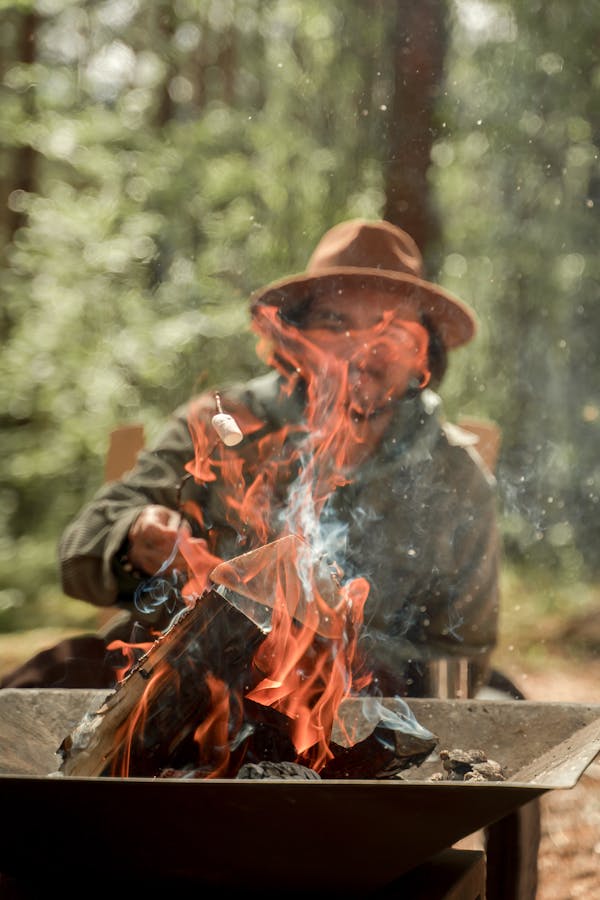The British countryside is overflowing with wild ingredients that can add flavor and nutrition to your cooking. But for novice foragers, it’s important to know what you’re doing and how to do it safely.
Always be cautious and never harvest from land without permission. Also, it’s important to use everything you gather and not let it go to waste.
Learn to identify plants and animals
Foraging is an age-old skill that our ancestors relied on to feed themselves. While many foragers now use their skills professionally, supplying top restaurants, you can also enjoy this ancient art as a recreational activity in your own backyard or nearby wilderness.
If you want to get started with foraging, you’ll need to learn how to identify plants and animals. This can take time and practice, but it’s essential if you want to gather safely and responsibly.
Foraging courses can teach you how to recognize the plants, flowers, and mushrooms that grow around you. You can even find online classes that help you discover the wild edibles in your region. You don’t need to be a botanist, but you do need to understand how to focus on the details—like knowing a pistil from a stamen or a simple leaf from a compound one. Click on Foraging course in Dorset for more information.
Learn how to prepare wild ingredients
Foraging is a fascinating pastime that can introduce new flavors, provide self-sufficiency and empower people. For our distant ancestors, it was just part of daily life. Gathering wild rosehips, for example, was a vital source of vitamin C during World War II as importation of the fruit became restricted.
Learn how to collect wild foods and herbs safely, ethically and sustainably. Specific safety considerations are discussed, along with in-depth plant monographs on a range of edible plants that grow around the world.
Whether you’re looking for soul-soothing spring greens, a tasty addition to summer soups or essential herbal preparations for your apothecary, you’ll gain an in-depth understanding of the ingredients that surround us. It’s important to be 100% sure you’ve identified the correct botanical – wild chervil, for instance, looks very indentical to hemlock, which can be fatal! Also be aware of where you’re collecting from – plants near busy roads are likely to absorb exhaust fumes, while watercourses may be polluted with pesticides.
Learn to cook with wild ingredients
Adding wild ingredients to your cooking can add unique flavors and help you connect with the land. Plus, it’s a fun way to save money at the grocery store!
You can find foraging classes online or in-person. Some are focused on a specific ingredient, like mushroom or seaweed. Others, such as Winter Foraging: Barks, Roots, & Flowers or Edible Spring Weeds and Flowers, cover the seasonality of different edible plants.

The most important part of learning to forage is safety. Never eat anything you’re not 100% sure about, and make sure to know how to identify your finds before picking them. Also, be sustainable—take only what you need, and leave the rest for other foragers and wildlife.
Learn to harvest, cook with, and eat local foods on an immersive foraging adventure at the off-grid Tree House HQ in Sussex. During this course, you’ll explore the woods with a foraging instructor and learn about wild edible plants and mushrooms in their natural habitat.
Learn to care for the environment
Foraging is a sustainable and ecological activity that helps reduce the burden on local grocery stores, restaurants, and markets. However, it’s important to practice leave-no-trace principles when foraging and not to over-harvest. This way, you can ensure that the population of your favorite plants will be able to sustain itself and that other animals that also rely on these species are not harmed in the process.
In addition, it’s a good idea to avoid picking from areas that may have been contaminated by human activities. Always wash your hands and tools after harvesting to prevent spreading harmful pathogens.
Finally, consider joining a foraging community or taking an in-person class to learn more about the wild edibles and medicinal herbs around you. This will allow you to gain a deeper connection with your natural environment and accelerate your identification skills. It’s also an excellent way to meet other people who share your passion for the outdoors.